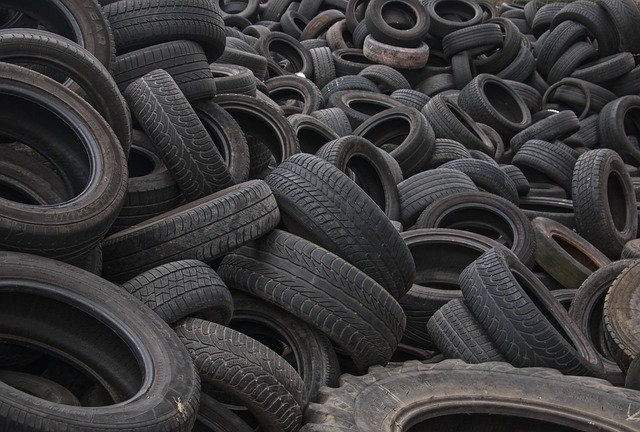Second Life for Tires: How Recycling Benefits the Environment and Economy
Every year, millions of tires reach the end of their useful life on vehicles. However, these discarded tires don't have to become environmental hazards or take up space in landfills. Tire recycling offers a sustainable solution that benefits both the environment and the economy. This article explores the world of tire recycling, its processes, and how you can participate in this eco-friendly practice.

What is tire recycling and why is it important?
Tire recycling is the process of repurposing used tires that are no longer suitable for vehicles. It’s crucial because tires are not biodegradable and can pose significant environmental risks if left in landfills or illegally dumped. Recycling tires helps conserve natural resources, reduce pollution, and create new products. Additionally, it prevents the breeding of mosquitoes in stagnant water that collects in discarded tires, reducing the spread of diseases.
How does the tire recycling process work?
The process of tire recycling involves several steps. First, tires are collected from various sources such as auto shops, tire retailers, and individual consumers. They are then sorted based on their condition and size. The next step is shredding, where tires are cut into smaller pieces. These pieces undergo further processing to separate rubber, steel, and fiber components. The rubber is often ground into crumb rubber, which can be used in various applications. Steel is extracted using magnets and recycled separately, while fiber is typically used as fuel in cement kilns.
What are the environmental benefits of tire recycling?
Tire recycling offers numerous environmental benefits. It significantly reduces the volume of waste in landfills, conserving valuable space. Recycling also prevents the release of harmful chemicals and gases that occur when tires decompose or are burned. By reusing materials from old tires, we reduce the need for raw materials, thus conserving natural resources and energy. Moreover, recycled tire products often have a smaller carbon footprint compared to products made from virgin materials, contributing to overall environmental sustainability.
How does tire recycling impact the economy?
The tire recycling industry has a positive impact on the economy. It creates jobs in collection, processing, and manufacturing of recycled tire products. The industry also stimulates innovation, leading to the development of new technologies and products. Recycled tire materials are used in various sectors, including construction, manufacturing, and agriculture, providing cost-effective alternatives to traditional materials. Additionally, proper tire recycling reduces the economic burden of managing illegal tire dumping and cleaning up environmental hazards caused by improperly discarded tires.
What products can be made from recycled tires?
Recycled tires find new life in a surprising array of products. Crumb rubber is used in playground surfaces, sports fields, and rubber mulch for landscaping. It’s also incorporated into asphalt for road construction, creating more durable and quieter roads. Tire-derived fuel is used in industrial processes, while tire shreds are utilized in civil engineering applications such as embankments and landfill construction. In the consumer market, recycled tire rubber appears in items like floor mats, shoe soles, and even fashion accessories. This versatility demonstrates the immense potential of tire recycling in various industries.
How can you find tire recycling centers in your area?
Finding tire recycling centers in your area is easier than you might think. Start by checking with your local waste management authority or environmental agency, as they often maintain lists of approved recycling facilities. Many tire retailers and auto service centers also offer tire recycling services, sometimes for a small fee. Online resources such as Earth911.com provide searchable databases of recycling centers based on your location. Additionally, some municipalities organize special collection events for tires and other hard-to-recycle items. By taking the time to locate a proper recycling center, you ensure that your old tires are disposed of responsibly and given a second life.
In conclusion, tire recycling plays a vital role in environmental conservation and economic growth. By transforming old tires into valuable resources, we reduce waste, conserve energy, and create new opportunities. As consumers, participating in tire recycling programs not only helps the environment but also supports a sustainable circular economy. The next time you need to dispose of old tires, remember the impact your choice can have and opt for recycling to give those tires a meaningful second life.






